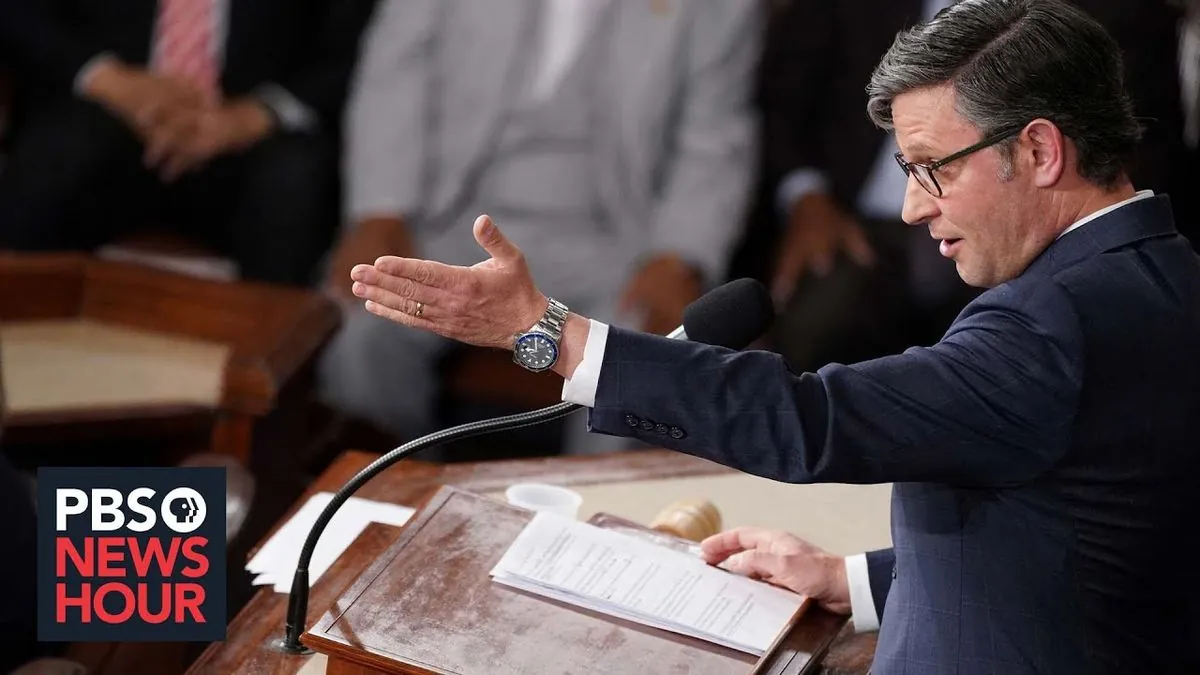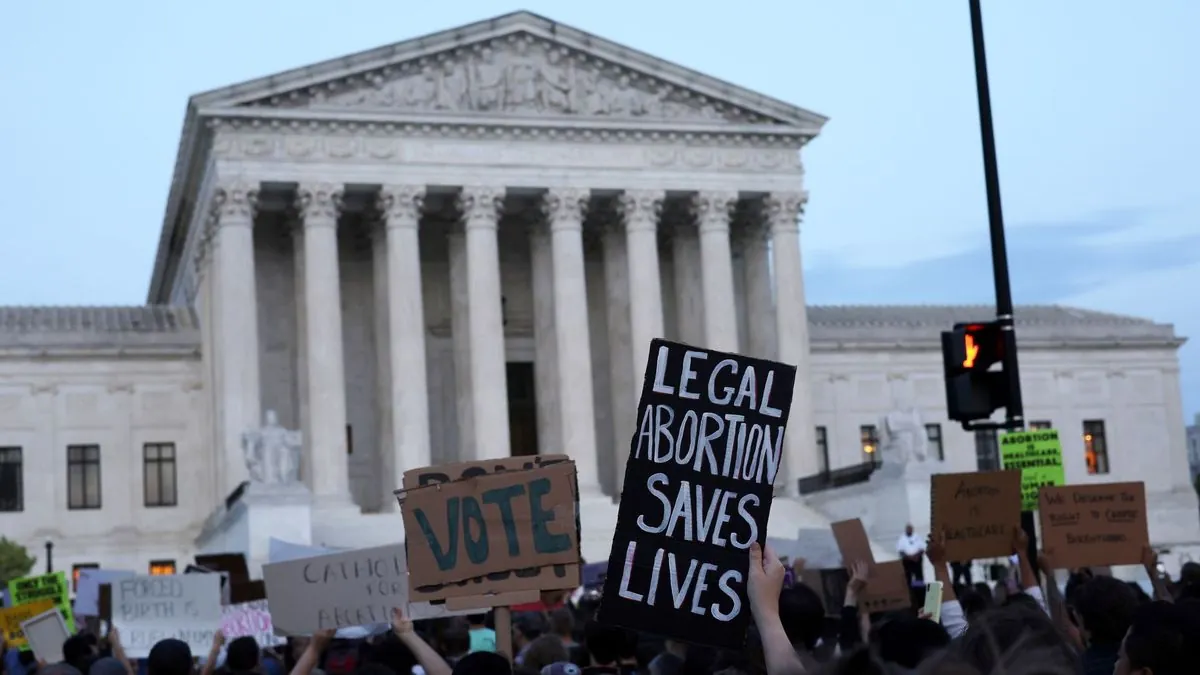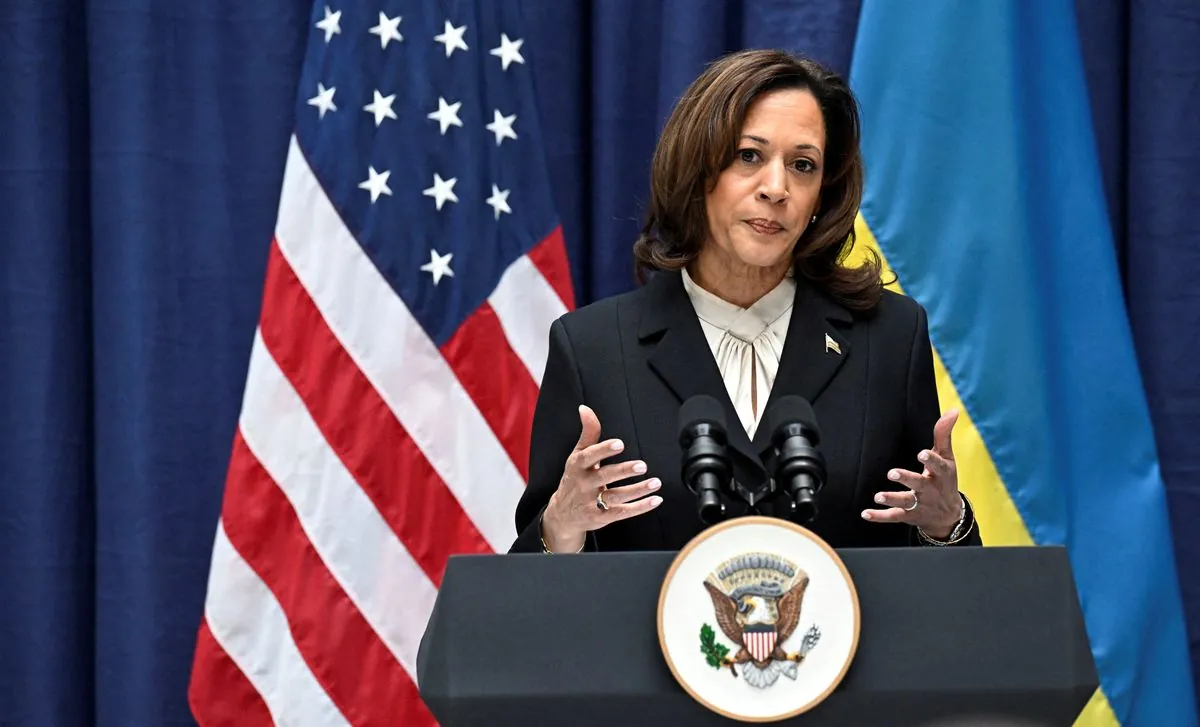House Speaker Johnson Dodges 2020 Election Legitimacy Question
House Speaker Mike Johnson avoids confirming Biden's 2020 election victory in a recent interview. His stance aligns with other Republicans' reluctance to address Trump's ongoing election fraud claims.

In a recent interview on ABC News's "This Week," House Speaker Mike Johnson (R-La.) sidestepped questions about the legitimacy of the 2020 presidential election. This exchange has reignited discussions about election denialism within the Republican Party, nearly four years after the contentious vote.
When pressed by host George Stephanopoulos to unequivocally state that Joe Biden won the 2020 election, Johnson deflected, characterizing the inquiry as a "gotcha game" played by mainstream media. This response echoes similar evasions by other Republican figures, including Senator JD Vance of Ohio, who recently avoided a similar question during a debate.
Johnson's reluctance to acknowledge the election results is particularly noteworthy given his role as Speaker of the House, a position he assumed on October 25, 2023. As the individual second in line for the presidency after the Vice President, his stance on electoral integrity carries significant weight.
The Speaker's history with election-related matters is complex. In the aftermath of the 2020 vote, Johnson spearheaded a congressional effort to challenge the results in four battleground states. He gathered 125 House Republicans to support a Supreme Court brief alleging fraudulent results due to changes in voting procedures implemented during the COVID-19 pandemic. This initiative ultimately failed, as did over 60 lawsuits filed by Trump and his allies, which were dismissed or dropped due to lack of evidence.

Johnson's actions extend beyond legal challenges. On January 6, 2021, he was among the Republicans who voted against certifying the Electoral College vote for Biden in two key states. This occurred on the same day as the Capitol riot, which resulted in five deaths and highlighted the volatile nature of election disputes.
It's worth noting that the 2020 election saw unprecedented voter turnout, with Biden receiving over 81 million votes – the highest ever for a U.S. presidential candidate. Despite claims of irregularities, the Department of Homeland Security declared it "the most secure in American history," and recounts in several states confirmed Biden's victory.
The ongoing refusal by some Republicans to acknowledge the 2020 results raises concerns about the upcoming November 5, 2024 election and its subsequent certification on January 6, 2025. While recent legislative changes, such as the Electoral Count Reform Act of 2022, have clarified the certification process, the potential for challenges remains.
Other prominent Republicans have also struggled with this issue. Senator Tom Cotton of Arkansas, when asked about Trump's loss, repeatedly stated that Biden was "elected" without explicitly acknowledging Trump's defeat. This semantic dance reflects a broader reluctance within the party to contradict Donald Trump's persistent claims of a "rigged" election.
"Johnson was a key architect of Donald Trump's efforts to overturn the last election, and now he's laying the groundwork to do the same thing all over again if Trump loses this November."
As the nation approaches another presidential election, the refusal of key political figures to unequivocally accept past results continues to cast a shadow over the democratic process. With each state maintaining its own election laws and procedures, and no federal election commission overseeing presidential contests, the integrity of the electoral system remains a topic of intense debate and scrutiny.


































